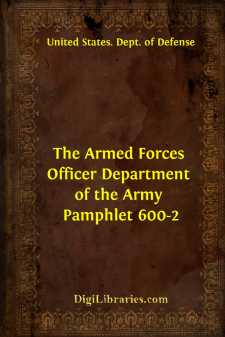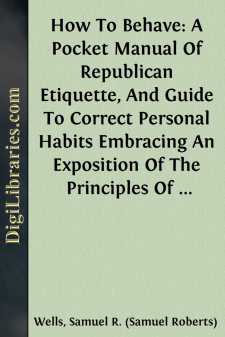Categories
- Antiques & Collectibles 13
- Architecture 36
- Art 48
- Bibles 22
- Biography & Autobiography 813
- Body, Mind & Spirit 142
- Business & Economics 28
- Children's Books 15
- Children's Fiction 12
- Computers 4
- Cooking 94
- Crafts & Hobbies 4
- Drama 346
- Education 46
- Family & Relationships 57
- Fiction 11828
- Games 19
- Gardening 17
- Health & Fitness 34
- History 1377
- House & Home 1
- Humor 147
- Juvenile Fiction 1873
- Juvenile Nonfiction 202
- Language Arts & Disciplines 88
- Law 16
- Literary Collections 686
- Literary Criticism 179
- Mathematics 13
- Medical 41
- Music 40
- Nature 179
- Non-Classifiable 1768
- Performing Arts 7
- Periodicals 1453
- Philosophy 64
- Photography 2
- Poetry 896
- Political Science 203
- Psychology 42
- Reference 154
- Religion 513
- Science 126
- Self-Help 84
- Social Science 81
- Sports & Recreation 34
- Study Aids 3
- Technology & Engineering 59
- Transportation 23
- Travel 463
- True Crime 29
The Armed Forces Officer Department of the Army Pamphlet 600-2
Categories:
Description:
Excerpt
CHAPTER ONE
THE MEANING OF YOUR COMMISSION
Upon being commissioned in the Armed Services of the United States, a man incurs a lasting obligation to cherish and protect his country and to develop within himself that capacity and reserve strength which will enable him to serve its arms and the welfare of his fellow Americans with increasing wisdom, diligence, and patriotic conviction.
This is the meaning of his commission. It is not modified by any reason of assignment while in the service, nor is the obligation lessened on the day an officer puts the uniform aside and returns to civil life. Having been specially chosen by the United States to sustain the dignity and integrity of its sovereign power, an officer is expected so to maintain himself, and so to exert his influence for so long as he may live, that he will be recognized as a worthy symbol of all that is best in the national character.
In this sense the trust imposed in the highest military commander in the land is not more than what is encharged the newest ensign or second lieutenant. Nor is it less. It is the fact of commission which gives special distinction to the man and in turn requires that the measure of his devotion to the service of his country be distinctive, as compared with the charge laid upon the average citizen.
In the beginning, a man takes an oath to uphold his country's Constitution against all enemies foreign and domestic, to bear true faith and allegiance, and to discharge well and faithfully the duties of office. He does this without any mental reservation.
Thereafter he is given a paper which says that because the President as a representative of the people of this country reposes "special trust and confidence" in his "patriotism, valor, fidelity, and abilities," he is forthwith commissioned.
By these tokens, the Nation also becomes a party to the contract, and will faithfully keep its bond with the man. While he continues to serve honorably, it will sustain him and will clothe him with its dignity. That it has vouched for him gives him a felicitous status in our society. The device he wears, his insignia, and even his garments identify him directly with the power of the United States. The living standards of himself and of his family are underwritten by Federal statute. Should he become ill, the Nation will care for him. Should he be disabled, it will stand as his guardian through life. Should he seek to advance himself through higher studies, it will open the way.
Other than the officer corps, there is no group within our society toward which the obligation of the Nation is more fully expressed. Even so, other Americans regard this fact with pride, rather than with envy. They accept the principle that some unusual advantage should attend exceptional and unremitting responsibility. Whatever path an American officer may walk, he enjoys prestige. Though little is known of his intrinsic merit, he will be given the respect of his fellow citizens, unless he proves himself utterly undeserving....












